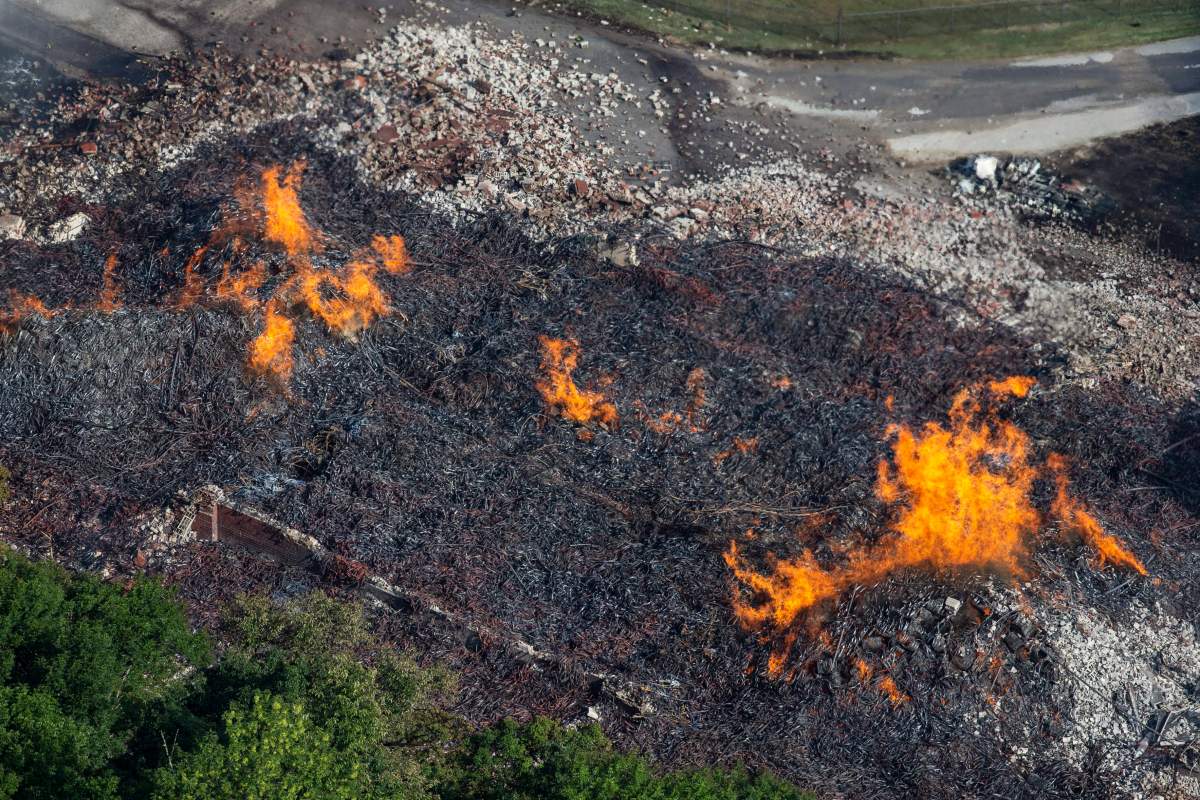Jim Beam is facing hefty environmental fines over a huge bourbon spill that resulted in scores of fish deaths last summer.

On July 3, lightning struck the company’s warehouse in Woodford County, Ky., causing a fire that resulted in the collapse of roughly 40,000 barrels of bourbon, according to an order from state environmental officials obtained by broadcaster WDRB.
The document, dated Dec. 9, says the amount of alcohol that escaped into the ground is unknown but a “fish kill” was investigated along 62 river miles — or nearly 100 km — of Glenn’s Creek and the Kentucky River.
The Kentucky Energy and Environment Cabinet brought five violations against the company — including for polluting waters — and levied a fine of US$600,000 plus an additional US$112,000 to reimburse costs of the response.
The document states that the company neither denies nor admits to the offences, but agrees to the order as a means to resolve the violations.
In a statement to the Louisville Courier Journal on Friday, Beam Suntory, the company that owns the Jim Beam brand, said it has made efforts to ameliorate the damage.

Get breaking National news
“While we were able to minimize impacts to the surrounding environment and wildlife — including by deploying aerators in nearby creeks and the Kentucky River, fire suppression and containment strategies to minimize runoff and ongoing water sampling and water field screening — we recognize the regrettable and unavoidable impacts of the incident and have been committed to doing what we can to restore the environment,” the statement said.
“That includes making payments to the state to compensate for time spent, resources utilized and costs to supplement the local fish population.”





Comments
Want to discuss? Please read our Commenting Policy first.